War

The Man Who Cried
August 29, 2000
A young refugee travels from Russia to America in search of her lost father and falls in love with a gypsy horseman.

走出硝烟的女神
July 26, 2000
Falling Sparrows
July 21, 2000
A high action war film with a twist. Shoot outs, stand-offs and heroics aplenty -- the difference being it's young kids not adult soldiers taking part.
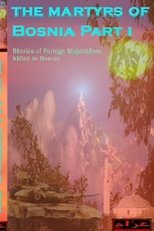
Martyrs of Bosnia
July 4, 2000
This unique video by Azzam Publications, the first of its kind in the English language with real-life combat footage of bosnian Mujahideen. Features Opening sequence shoenglawing oppression of Muslims in different parts of the World and Origin of the Jihad in Bosnia. Film from the first Mujahideen Training Camp at Mehorich. Video biographies of over 20 other Mujahideen killed in Bosnia in 1992 and 1993. The Famous Prisoner Exchange Operation with the UN in 1993. Combat footage of Mujahideen operations against Croatian Forces in 1993. Exclusive footage of Wahiudeen: the Second Commander of the Mujahideen in Bosnia & etc.

The Patriot
June 28, 2000
After proving himself on the field of battle in the French and Indian War, Benjamin Martin wants nothing more to do with such things, preferring the simple life of a farmer. But when his son Gabriel enlists in the army to defend their new nation, America, against the British, Benjamin reluctantly returns to his old life to protect his son.
Wilfred
June 3, 2000
Imagining the unimaginable through the eyes of Wilfred Owen, combining reconstructions of Owen’s war experiences with animation and readings from his poems and letters.
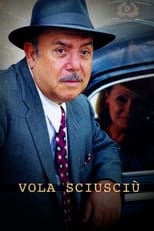
Vola sciusciù
May 30, 2000
In war-torn Puglia, mute homeless but childlike in spirit fifty-year-old Sciusciù witnesses three Allied paratroopers landing one night and resolves to guide them to safety. He brings them to his trusted friend Annamaria’s farmhouse, persuading her to hide and protect the fugitives.
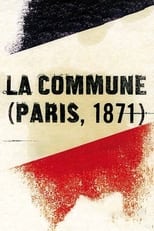
La Commune (Paris, 1871)
July 3, 2003
We are in the year 1871. A journalist for Versailles Television broadcasts a soothing and official view of events while a Commune television is set up to provide the perspectives of the Paris rebels. On a stage-like set, more than 200 actors interpret characters of the Commune, especially the Popincourt neighborhood in the XIth arrondissement. They voice their thoughts and feelings concerning the social and political reforms.
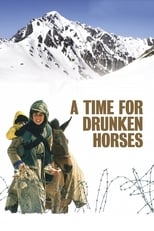
A Time for Drunken Horses
September 13, 2000
After their father dies, a family of five children are forced to survive on their own in a Kurdish village on the border of Iran and Iraq.
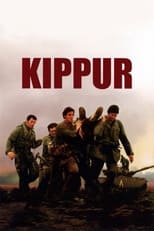
Kippur
September 7, 2000
The film takes place in 1973 during the Yom Kippur War in which Egypt and Syria launched attacks in Sinai and the Golan Heights. The story is told from the perspective of Israeli soldiers. We are led by Weinraub and his friend Ruso on a day that begins with quiet city streets, but ends with death, destruction and devastation of both body and mind. Various scenes are awash in the surreal, as Weinraub's head hangs out over a rescue helicopter's open door, watching with tranquil desperation as the earth passes beneath, the overpowering whir of the blades creating a hypnotic state. It is not a traditional blood, guts and glory film. There are no men in battle, only the rescue crew trying to pick up the broken pieces.

In Our Own Hands
May 14, 2000
The story of the only all-Jewish fighting force in World War II.
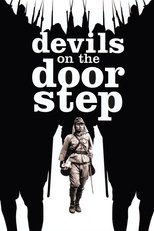
Devils on the Doorstep
October 26, 2001
During the Japanese occupation of China, two prisoners are dumped in a peasant's home in a small town. The owner is bullied into keeping the prisoners until the next New Year, at which time they will be collected. The village leaders convene to interrogate the prisoners. The townspeople then struggle to accommodate the prisoners. One is a bellicose Japanese nationalist, the other a nervous translator. Will the townspeople manage to keep the prisoners until the New Year?
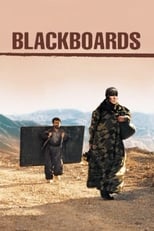
Blackboards
September 1, 2000
Itinerant Kurdish teachers, carrying blackboards on their backs, look for students in the hills and villages of Iran, near the Iraqi border during the Iran-Iraq war. Said falls in with a group of old men looking for their bombed-out village; he offers to guide them, and takes as his wife Halaleh, the clan's lone woman, a widow with a young son. Reeboir attaches himself to a dozen pre-teen boys weighed down by contraband they carry across the border; they're mules, always on the move. Said and Reeboir try to teach as their potential students keep walking. Danger is close; armed soldiers patrol the skies, the roads, and the border. Is there a role for a teacher? Is there hope?
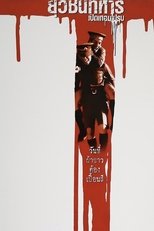
Boys Will Be Boys, Boys Will Be Men
April 28, 2000
In May of 1941, a group of young army volunteers is recruited in Chumpon south of Bangkok. Many high-school students apply to join the group. When the Japanese army lands at Chumpon in December, they bravely fight against the army. The film is based on the true story of how young army volunteers fought to defend their country from the Japanese Army. A misunderstanding between the two nations caused the unnecessary war to break out.
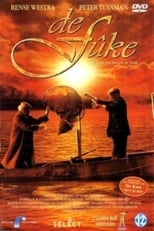
De fûke
April 20, 2000
Frisian movie from 2004
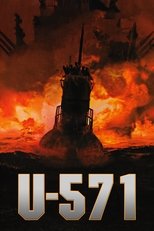
U-571
April 20, 2000
In the midst of World War II, the battle under the sea rages and the Nazis have the upper hand as the Allies are unable to crack their war codes. However, after a wrecked U-boat sends out an SOS signal, the Allies realise this is their chance to seize the 'enigma coding machine'.
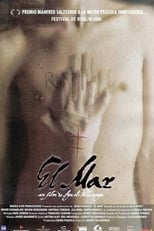
The Sea
April 14, 2000
Childhood friends reunite later in life in Spanish tuberculosis sanitorium. Pressures of death all around combine with dark secrets of their past.
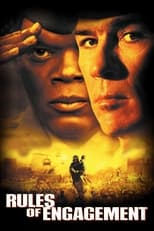
Rules of Engagement
April 7, 2000
A Marine Colonel is brought to court-martial after ordering his men to fire on demonstrators surrounding the American embassy in Yemen.

World War II Greatest Battles: The Normandy Invasion & The Victory
April 1, 2000
The Normandy Invasion: See the planning and execution of the most famous battle in modern history, filmed as it occurred by U.S. Coast Guard cameramen, from the massing of thousands of ships and men to the ultimate victory. Time: 21 minutes. The Victory: This film focuses on the final year of the World War II on both fronts, including the liberation of Rome, Paris, and the Philippines, and the historic surrender of both the German and the Japanese armies. Time: 31 minutes.
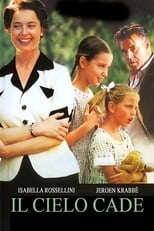
The Sky Is Falling
March 28, 2000
1943, an estate north of Firenze. The weight of the world is on the shoulders of Penny, who's about 10. An orphan, she must watch over her little sister when they go to live with her aunt and uncle. Penny's a Catholic, and worries about her uncle's soul. He's Jewish, progressive and a free thinker, a fair boss, and devoted to his family. He can be stern, so Penny also worries that she'll never please him and that he won't love her. Then, after the Allied forces land in Sicily and the Germans begin their retreat, Penny must worry about her uncle's life. She tries logic and appeals to human decency. Can a child keep the sky from falling?